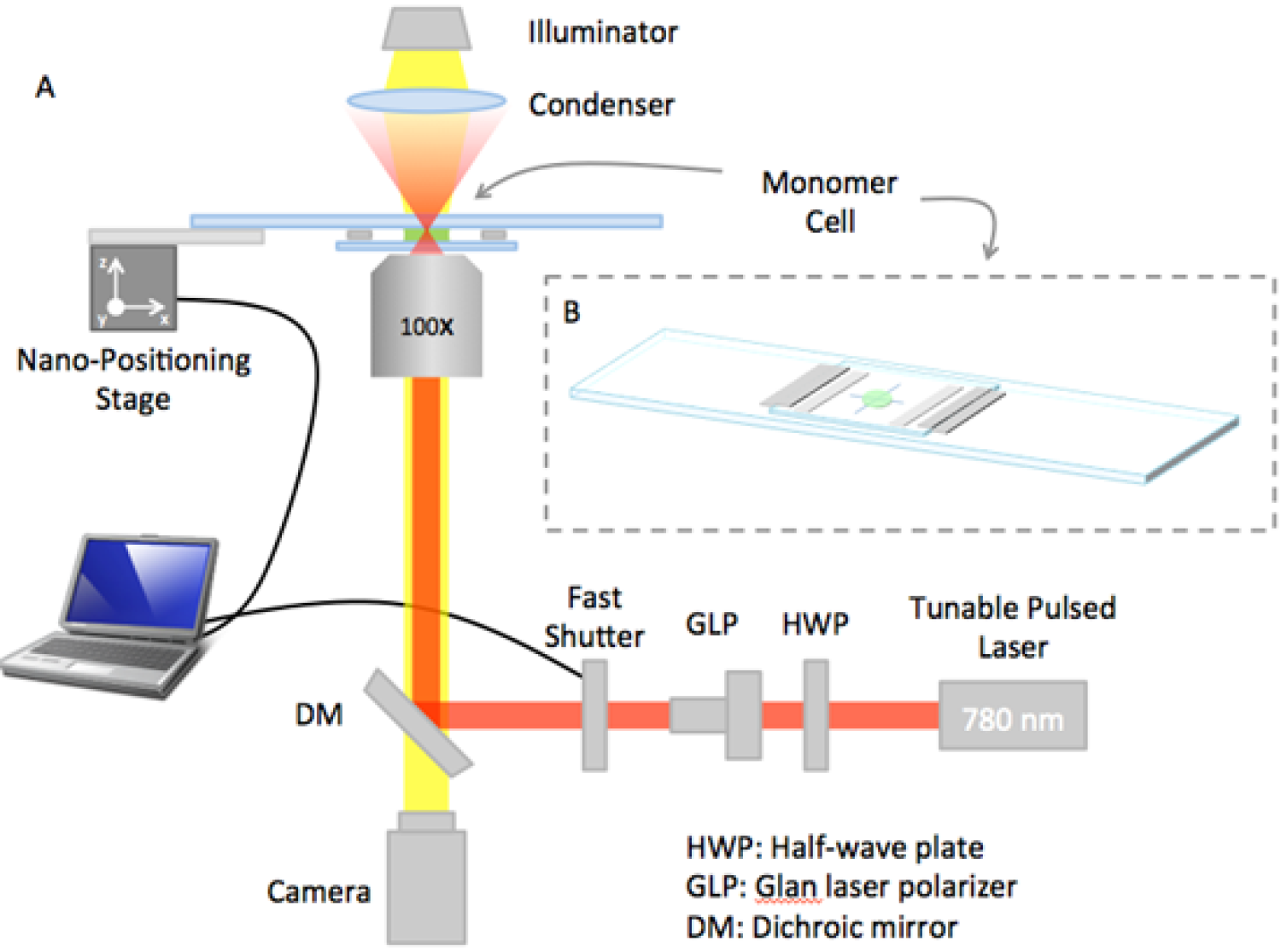Two-Photon Photopolymerization for Fabrication of Complex-Shaped Particles and Structures
We photopolymerize complex-shaped particles within glass cells consisting of a standard microscope slide and a 170 μm-thick coverslip, spaced by 50 μm-thick strips of Mylar films. The cell is “sandwiching” a droplet of photoresist. The multiphoton polymerization setup consists of a tunable femto-second pulsed Titanium:Sapphire laser operating at wavelength of 780 nm, piezo-electric nano-positioning stage (Physik Instrumente, model P-611.3SF, 0.2 nm resolution), and a fast shutter (Uniblitz, model LS3Z2, 200 Hz). The pulsed laser beam is first passed through a half-wave plate and subsequently through a Glan laser polarizer for polymerizing beam's power control. The average laser power used ranges from 3mW for small knots to 13 mW for larger ones, as measured just before the objective (note that the power in the sample is further reduced by about a factor of two due to light absorption by the objective and confining glass plates in the near infrared part of spectrum). The beam passes through the shutter and is then directed to the back aperture of the objective using a dichroic mirror and focused within the bulk of the monomeric sample. An oil-immersion objective with 100× magnification and high numerical aperture of 1.4 (Olympus) is used for focusing. Due to the nonlinear nature of the multiphoton-absorption-based photoinitiation process, polymerization occurs in the vicinity of the focused beam’s focal point, with the sub-diffraction limited resolution dependent on the used laser power. A LabView–based homemade computer software controls both the shutter and nano-positioning stage in concert to polymerize arbitrary 3D topological colloids.

Two-Photon Photopolymerization Setup. (A) A simplified schematic depicting key components of the two-photon photopolymerization system. A computer controls timing between the fast shutter and nano-positioning stage in order to “draw” desired structures of polymerized solid particles. (B) A schematic view of the photopolymerization cell with monomer and photoinitiator in the form of a droplet sandwiched between a glass slide and a microscope coverslip.

